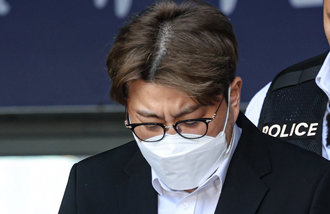The aftermath of Apple`s legal win over Samsung
The aftermath of Apple`s legal win over Samsung
Posted August. 27, 2012 06:07,
In the landmark trial between Samsung Electronics and Apple, a Northern California jury ruled that Samsung willfully infringed on Apple`s design patents and six other patents. The Korean company was ordered to pay 1.05 billion U.S. dollars in damages to Apple. On Samsung`s countersuit accusing Apple of infringing on five patents, including those of communications technology, the jury also overwhelmingly sided with Apple, concluding that Apple owed Samsung nothing.
This time, the right to rectangles with rounded corners, which had not been recognized by courts in the U.K. or Korea, was admitted by the U.S. jury. A British court judged that models of Samsung`s Galaxy Tab did not infringe on Apple`s design patents and ordered Apple to post the verdict on its U.K. website. The British court ruled that most of the designs Apple claimed on patents lacked originality and had been commonly adopted in early tablet product designs based on research on about 50 items produced before 2004. Apple`s claim on design patents had also been rejected by courts in Germany, the Netherlands and Korea.
The U.S. jury spent just 22 hours to conclude a case with a verdict 109 pages long and reached a decision that contradicts rulings by other courts abroad. Considering the week-long deliberations on lawsuits over patents by Google or Oracle, this was an unusually swift decision. The amount of damages is also subject to debate. The jury foreman said, "All of us feel we were fair, that we can stand by our verdict." The impartiality and professionalism of the jury are questioned, however, as all of the jurors live near Apple headquarters and lack sufficient technological knowledge to have insight into the issues. In a nutshell, Apple is an American company while Samsung is not, and the American jurors were not IT gurus.
IT experts around the world consider this case as Apple`s attempt to hold back Samsung from moving forward. Though a latecomer to the smartphone industry, Samsung has achieved rapid growth in the field and owned the largest share of 23 percent of the U.S. smartphone market this year. The Economist magazine criticized Apple for trying to limit customer choice through lawsuits. Netizens chimed in with the same sentiment, with one saying, "All tires are round. If Apple first made a four-wheeled vehicle, we wouldn`t have seen them on the streets."
Intellectual property rights must be protected because they are the result of huge investment by companies. Yet if a company tries to monopolize even minor technologies or designs, this will lead to fewer customer choices and innovations by companies. In the end, consumers will pay the astronomical litigation costs as well. As the global economic slowdown continues, more countries are likely turn to protectionism. As a result, many Korean exporters will have to deal with stronger attacks overseas. This is why Korean companies should pay close attention to this verdict.
So far, Korean exporters have tended to deal with patent issues after problems occur. Yet now is the time for them to step out of their comfort zone and take preemptive measures by reinforcing patent management. Related patents should be researched and analyzed from the planning stage of a product to prevent trouble down the road and minimize damage. This is the only way to defend against potential disadvantages from lawsuits on their competitors` turf.
Headline News
- 55%of SNU Hospital professors start indefinite suspension from today
- DP intends to complete the composition of National Assembly this week
- Too high bonus for head of reconstruction associations causes controversy
- 13 infectious diseases sharply increase across the world
- International Skating Union revises major rules







